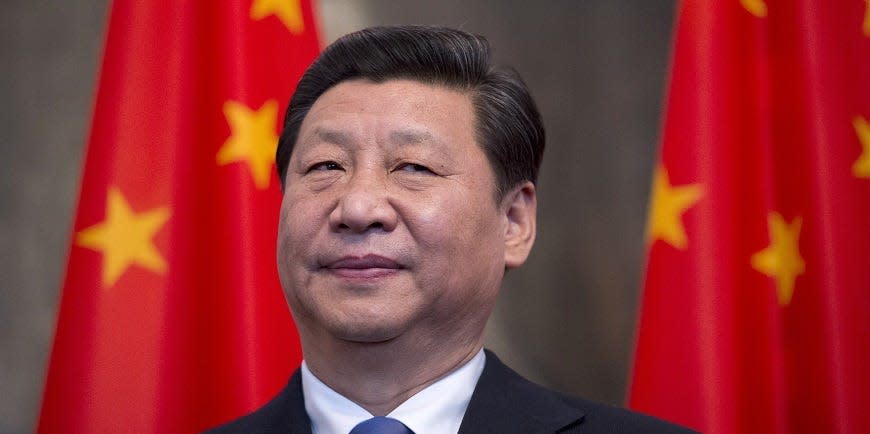Markets are sounding alarms on China's economy, but an analyst says Wall Street is missing the big picture

Financial markets have been raising red flags recently about China's economy.
That's because high expectations for a robust post-Covid rebound have largely failed to pan out.
But an analyst said Wall Street is being too short-sighted and not looking long term.
Financial markets have been raising red flags recently about China's economy, but an analyst said Wall Street is missing the big picture.
Growth in the world's second largest economy accelerated to 4.5% in the first quarter from 2.9% in the fourth quarter following the relaxation of COVID restrictions late last year.
But more recent data have pointed to slowing growth in retail sales as well as drops in home sales, industrial production and fixed-asset investment.
That disappointed investors hoping for a bigger post-COVID rebound and led Wall Street to trim its growth estimates for the full year. Worries about China's economy have rippled through markets.
Earlier this month, the yuan fell past a psychologically important level of 7 per dollar for the first time this year. The price of copper, once expected to see sizable gains due to high demand from Chinese factories, hit a four-month low in mid-May.
Meanwhile, shares of luxury brands that are reliant on China's consumer base, have started tumbling on stagnant activity.
Chinese equity markets were not immune to slowing performance, as the CSI 300 index continued to slip this week. At the end of April, declining hopes for added stimulus brought the Shenzhen and Shanghai indices down by $519 billion in one week alone.
The stalling performance prompted Rockefeller International's Ruchir Sharma to call the rebound narrative a "charade."
But for one analyst, the growing pessimism around China's economy could stem more from unrealistically high expectations and Wall Street's tendency to prioritize immediate metrics over long-term outlooks.
"I feel sorry for these people in some ways, because every time the Chinese release some data, they have to say something about it," Nicholas Lardy of the Peterson Institute for International Economics told Insider.
Heightened anticipations may be due to China's response to the 2008 financial crisis, when Beijing infused the economy with massive stimulus and achieved double-digit growth, Pantheon Macroeconomics' Duncan Wrigley said.
However, it also led to a huge debt hangover that China has worked to resolve for much of the last decade. So while demand is slowing, limiting debt growth is equally prioritized by party leaders, he said.
The country set a more conservative 5% growth target in March, which both analysts see as achievable. Although the country will avoid full-scale stimulus to reach the goal, it has a number of tools to ensure growth keeps ticking upwards.
Despite its aim to limit debt, China could increase the availability of cheap loans to sectors in need, as well as lift the lending quota for the three main policy banks, while allowing them to invest in local projects, Wrigley said.
If this isn't enough, he noted that the People's Bank of China could ease financial conditions later in the year, such as decreasing the reserve requirement ratio for banks.
But youth unemployment remains high, while heightened geopolitical risk may deny China's access to foreign technology.
And private investment, a major source of growth in China, has nearly collapsed in the past 15 months, Lardy said.
This may have to do with stringent regulation of Chinese business, as President Xi Jinping expands the role of the state in the market, dissuading business owners from investing in their firms, he said.
"That's the one big negative factor that I worry about more than all the other things that we have talked about. Why is private investment so weak?" he said.
Read the original article on Business Insider

 Yahoo Sports
Yahoo Sports 